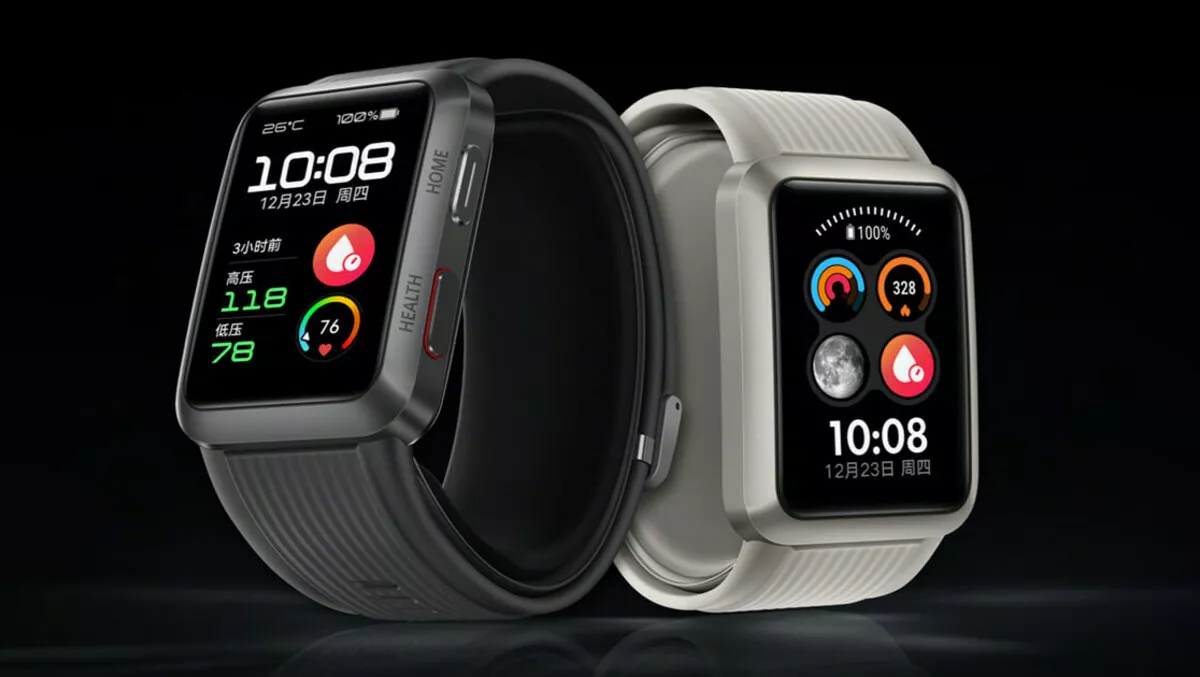
Hands-on review: Huawei Watch D smart watch
The Huawei Watch D is the latest flagship smart watch from the Chinese tech giant, and it's further proof that the company is more than capable of competing with the likes of Samsung and Apple in the highly competitive wearable market.
The cutting-edge blood pressure monitoring feature uses a built-in airbag to make it as accurate as possible, and other standout features like 70+ workout modes and ECG and skin temperature monitoring make the Watch D a true contender if you're in the market for a new premium smart watch.
First impressions and setup
Compared to other smart watches in Huawei's current portfolio, you can tell straightaway that this is its best model. The packaging and the overall unboxing experience feels premium and (dare I say it) almost 'Apple-like'.
The device is surprisingly weighty at 41 grams and feels nice and solid on your wrist. It's also pretty and features just two non-intrusive buttons on the face's right-hand side.
The Watch D puts a lot of focus on the device's setup. This is partly to optimise comfort, but it also ensures that the blood pressure monitor performs as accurately as possible.
Two butterfly clasp straps are included in the box to tailor the watch to your wrist, as well as an innovative foldable 'ruler' to measure your wrist with. The straps are made from a rubber-like material, while the rectangular watch face is made from glass within a durable aluminium case. It feels premium and very well put together.
I reviewed the Huawei Watch GT back in March 2019 and commented then on how simple it was to set up. It's a good thing that, other than some minor upgrades to the app over the last three years, Huawei's user experience remains pretty much the same. Pairing to the watch takes just a couple of minutes via the HUAWEI Health app, and once complete, your device will appear on your phone and allow you to update things like the watch face with ease.
All your data can also be viewed through the app, and it goes without saying that the more you wear it, the more you can find out about your fitness and lifestyle. After approximately three weeks of wearing the Watch D, I was fascinated to see how closely my fitness was being tracked – from the dozens of times I tested my blood pressure to the amount of REM sleep I was getting.
Performance
The Huawei Watch D runs smoothly, and the 1.64-inch, 456x280-pixel AMOLED screen is one of the most responsive I've tested.
I've already touched on a handful of things the watch can do, but things like the HUAWEI TruSeen 5.0+ heart rate monitoring technology make this one of the most accurate smart watches on the market.
The ECG app packs a high-performance ECG sensor module, which provides single-lead ECG measurements, real-time analysis, and sinus rhythm, atrial fibrillation, and premature atrial and ventricular beat reminders to stay informed and proactive about major heart health-related risks.
The handful of the 70+ workout modes I tried worked great and were familiar, too, given my time with the Watch GT (which I still use to this day). One thing to consider is that the fabric airbag built into the strap can get sweaty after a particularly heavy workout. This could prove to be a smelly problem over time. Built-in GPS allows you to track your runs without needing your smartphone nearby.
The HUAWEI TruSleep 2.0 app works excellently. It identifies key sleep states, including deep sleep, light sleep, rapid eye movement (REM) sleep, naps, and wake-up times, with sleep quality scores and personalised advice on how to get the best possible night's rest. I found myself checking this every day, so I could try and improve my rest time the next night.
Other key features like stress and SpO2 monitoring also worked well. Importantly, all the key information was displayed well in the HUAWEI Health app.
There are also handy features like the ability to do a daily health check-in and share your results with family members via the app. This could be particularly useful for older users who might want to share their health information.
The battery can run for an outstanding seven days between charges, which is a great selling point ahead of the likes of the Apple Watch.
One gripe I did have during my time with the Watch D was that it seemed to disconnect randomly from my iPhone 11, although I suspect it might not have this issue with an Android device, particularly a Huawei one.
Sadly, you can't do things like respond to messages via the device (which is a feature that I know a lot of Apple Watch and Samsung Galaxy Watch users don't even use due to the small screen size). It also lacks features like web browsing, which, again, isn't for everyone.
Verdict
The Huawei Watch D is well-equipped and has some of the best (and most) features I've ever seen in a smart watch. Devices like this one have now reached the point where they're genuinely able to change lifestyles and even save lives.
The elephant in the room here is the price, which I've purposely not mentioned until now. The Watch D currently has an RRP of $749. Pricewise, this puts the watch right next to the flagships from Samsung and Apple.
The question is – will Huawei be able to do enough to sway potential buyers towards the Watch D? If it were me, I'd be seriously tempted…


